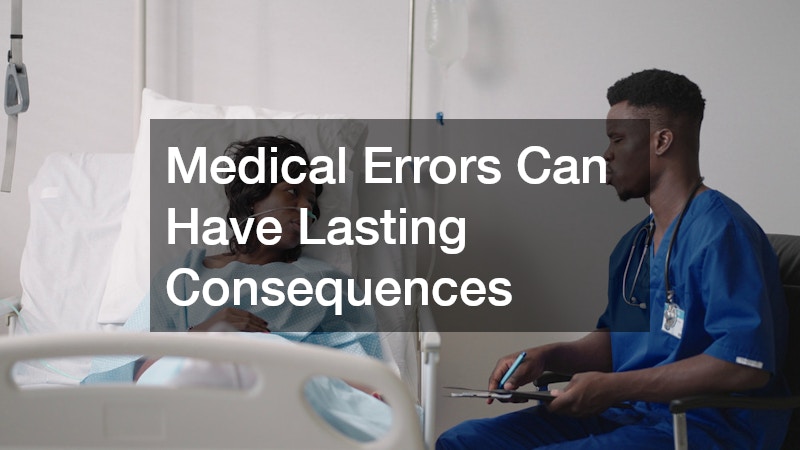
Medical care can be life-changing, but sometimes mistakes happen that result in serious harm. When patients experience injuries due to medical errors, they may face physical, emotional, and financial consequences. Understanding whether these errors qualify as legal malpractice can feel overwhelming. This is where malpractice attorneys play a critical role, helping victims navigate complex medical and legal information to determine if they have a viable claim.
Evaluating a potential claim is not just about identifying an error; it requires a careful review of medical records, patient outcomes, and legal standards. Victims often struggle to know whether what they experienced rises to the level of negligence recognized by law.
A systematic approach, guided by experienced attorneys, can help clarify the situation, ensuring that victims take informed steps toward seeking justice and compensation.
Understanding Medical Negligence
Medical negligence occurs when a healthcare professional fails to provide care that meets accepted standards, resulting in injury or harm. It is more than a simple mistake; it involves a breach of duty that directly causes damage to a patient. In legal terms, negligence requires proof that the healthcare provider acted in a way that a reasonably competent professional would not have under similar circumstances.
Attorneys evaluate claims by closely examining the circumstances surrounding the alleged error. This includes reviewing the treatment provided, comparing it with accepted medical practices, and determining whether the healthcare professional’s actions deviated from what was reasonable. They also consider whether these deviations directly contributed to the patient’s injuries, which is a key factor in establishing a valid claim.
Gathering Essential Documentation
Accurate documentation is crucial when evaluating a medical malpractice claim. Medical records, lab results, imaging, and treatment histories form the foundation of any legal review. Without these documents, it is nearly impossible to prove that negligence occurred or to understand the full scope of the patient’s injuries.
Malpractice attorneys work to obtain comprehensive records and organize them for analysis. They may also consult with medical experts to interpret technical information and identify inconsistencies or errors in treatment. Every detail, from physician notes to medication schedules, can provide insight into whether the standard of care was breached and strengthen the claim’s credibility.
Assessing Legal Viability
Not every medical error qualifies as a case for legal action. A claim must meet certain legal requirements, including proof of duty, breach, causation, and damages. Malpractice attorneys assess whether the facts align with these legal standards and whether pursuing a claim is likely to succeed. This step helps avoid unnecessary legal costs and guides victims toward realistic outcomes.
Attorneys carefully review the evidence to determine if the injury is legally actionable. They consider factors such as the severity of harm, the availability of expert testimony, and any statutes of limitations that may apply. By evaluating these elements early, attorneys can advise clients on the strengths and weaknesses of their potential claims, helping them make informed decisions about next steps.
Evaluating Damages and Harm
Determining the full impact of a medical error is a critical part of the evaluation process. Damages may include medical expenses, lost wages, pain and suffering, and long-term care needs. Understanding the extent of harm ensures that victims seek appropriate compensation for their losses.
Malpractice attorneys calculate damages by analyzing both immediate and future needs. They work with experts in medicine, economics, and rehabilitation to project ongoing costs and assess the broader consequences of the injury. This detailed assessment not only supports the claim but also prepares clients for discussions about potential settlements or litigation.
Consulting With Experienced Attorneys
Professional guidance is essential when navigating a medical malpractice claim. Experienced attorneys provide knowledge of legal procedures, negotiation strategies, and courtroom expectations. They help victims understand their rights, weigh options, and pursue compensation effectively.
Consulting with malpractice attorneys often begins with a free or low-cost evaluation. During this process, attorneys review medical documentation, discuss the events in detail, and explain the legal standards that apply. They can identify challenges and opportunities unique to each case, guiding clients toward the best course of action while minimizing confusion and stress.
Medical errors can have lasting consequences, and determining whether a claim is viable requires careful analysis and expertise. From understanding negligence to evaluating damages, every step is crucial in ensuring that victims receive the justice they deserve. Malpractice attorneys provide guidance, clarity, and support throughout this process, helping individuals navigate a complex system with confidence.
By systematically reviewing medical records, assessing legal requirements, and consulting with experts, attorneys help victims understand the strength of their claims and the potential outcomes. With the right legal support, patients can take informed steps toward seeking compensation, protecting their rights, and achieving closure.



